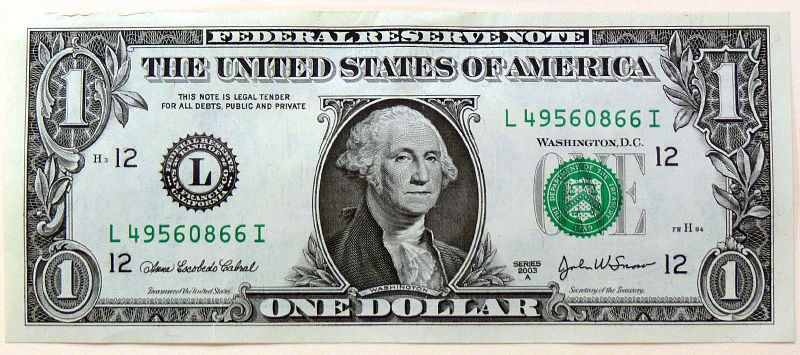 The next U.S. president will be confronted with slow growth, high unemployment and an economy teetering toward recession, say 51 private economists surveyed by The Wall Street Journal.
The next U.S. president will be confronted with slow growth, high unemployment and an economy teetering toward recession, say 51 private economists surveyed by The Wall Street Journal.If they are correct, pumping up the economy will the first challenge facing either Democrat Barack Obama or Republican John McCain. That is likely to place tax cuts and government spending high on Washington's agenda, and push back costly measures such as reforming health care and fighting global warming.
The Wall Street Journal's latest monthly survey paints a gloomy picture of the outlook through the first half of 2009. The economy is on course to post four straight quarters of annualized economic growth below 2%, the longest stretch of subpar growth since the 2001 recession.
The respondents saw a 60% chance of an outright recession, expect the economy to shed 19,000 jobs a month for a year, and say the jobless rate, which jumped in August to 6.1%, will keep rising, to 6.4% by midyear, passing the 6.3% seen after the last recession.
The worst stretch will be the next few months, the economists say, coming as elections shift into high gear. Annualized growth in the gross domestic product is projected at 0.7% in the fourth quarter. A few months ago, forecasters thought the economy would be growing at a much faster clip by then.
By inauguration day, Jan. 20, the situation won't have improved much, they say. Growth in the first quarter is projected at a 1.3% annual rate.
Charts and Full Results
See and download forecasts for growth, unemployment, housing and more. Plus, views on another stimulus package, a consumption slowdown, where the economy will be on election day. Survey conducted Sept. 5-8.
"Rapidly rising unemployment, rebates behind us, falling house prices, falling stock prices, general loss of confidence and much tighter credit conditions. None of it looks good," said Paul Ashworth of Capital Economics.
Not all the news is bad. Inflation is expected to moderate. Economists forecast oil prices to be down to about $102 a barrel by the end of this year, and below $100 a barrel by June, potentially helping to take pressure off stretched households.
Even so, consumers are likely to be hurting. They have been stung not only by rising food and energy prices, but also by a deteriorating job market, tighter credit and falling home prices.
Yvette Perera, 39 years old, of Vallejo, Calif., was laid off in January from her job handling help-wanted ads for a small local paper, and has since been unable to find work. Her unemployment benefits end Nov. 1. "I'm looking for anything," she said. "Anything." On supermarket runs, she tries to limit herself to spending $40.
Sen. McCain has proposed cutting corporate taxes to 25% from 35%, and retaining all the Bush tax cuts on individuals, figuring that would give a boost to business. Sen. Obama would increase tax rates for those making more than $250,000 and use the proceeds for tax cuts aimed at moderate-income workers. Helping them would pump up the economy through consumer spending, his advisers argue.
About the Survey
The Wall Street Journal surveys a group of 56 economists throughout the year. Broad surveys on more than 10 major economic indicators are conducted every month. Once a year, economists are ranked on how well their forecasts have fared. For prior installments of the surveys, see: WSJ.com/Economists.
On average, the survey respondents expect a 0.1% contraction in consumer spending during the third quarter. It would mark the first such retrenchment by consumers in 17 years. Consumers kept spending during the last recession, to the surprise of many economists. The respondents expect 0.1% growth in consumer spending in the fourth quarter as the holiday shopping season kicks into gear.
Retailers posted weak August same-store sales -- sales at stores open at least a year -- amid a disappointing back-to-school season. On Friday, the Commerce Department is set to release official retail sales numbers for August. Economists surveyed by Dow Jones Newswires expect an anemic monthly advance.
Nearly one-third of economists surveyed said the consumer retrenchment may not be reversed for years, a problem that could quickly rise to the top of the next president's agenda.
The Federal Reserve already has cut interest rates sharply, meaning any future stimulus might need to be driven by the White House. But choosing a fiscal-policy course will be tricky. A rising budget deficit could constrain the next administration. Meantime, tax rebates proved to be only a fleeting help.
Two-thirds of economists said a second stimulus package, currently being debated in Congress and supported by Sen. Obama, isn't the right move. Most support extending or making permanent President George W. Bush's tax cuts, as does Sen. McCain.
Among the economists who support a new stimulus, none said it should primarily be based on rebates to individuals, as Sen. Obama would do. His $115 billion plan includes $65 billion in rebates and $50 billion split between aid to state and local governments, and infrastructure spending. He would pay for the rebates by taxing oil-company profits. Sen. McCain has said he is open to a stimulus plan, but hasn't committed to any specific proposal.
Thirteen percent of the economists who support a stimulus plan said it should include infrastructure spending, which some argue carries more bang for the buck, while 2% said it should focus on extending unemployment insurance and food stamps. Nineteen percent said it should include some mix of rebates, infrastructure spending and benefits.
"You can't afford to bail out the financial system and the real economy at the same time," said Mr. Ashworth.
By: Phil Izzo and Kelly Evans
Wall Street Journal; September 12, 2008
